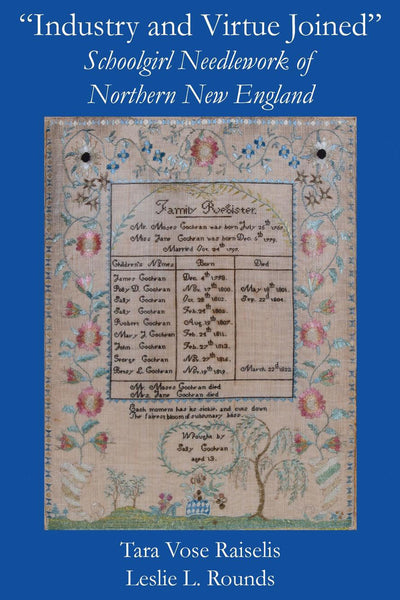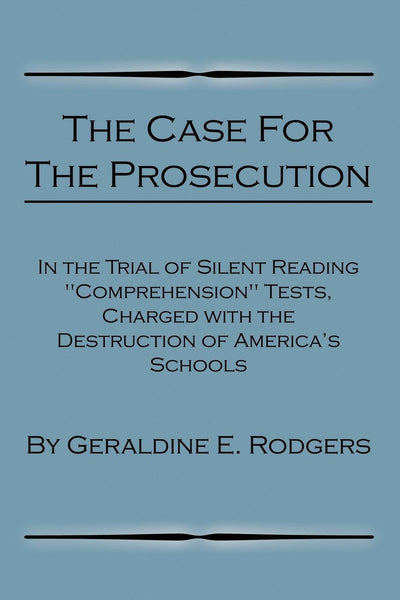The Case for the Prosecution
$14.95
Author: Geraldine E. Rodgers
ISBN 978-1-58939-995-2 (softcover);
978-1-63868-149-6 (eBook)
Those who do not know history are condemned to repeat it. Yet that truism is never remembered when our functional illiteracy disaster is being discussed by "experts," and so the same errors are repeated, decade after decade, and even century after century. The Case for the Prosecution and the two papers following it were originally published in 1981, 1982, and 1983. They reported on the author's extensive library and oral-reading-accuracy research which turned up the historical causes for functional illiteracy and the proven solution for it, and also why that proven solution has so often been mislabeled as poison. In the intervening decades since these three papers came out, they have never been cited in any of the enormously expensive U.S. Government reading research programs or in any publications by so-called "experts" in the reading instruction "establishment." However, since these papers contain much historical detail which is not repeated in the author's more recent works, they are being re-issued for those non-Governmental and non-"establishment" readers who are interested in learning the real facts.
ABOUT THE AUTHOR
To research the causes for the reading disabilities she saw in her third-grade classes, Geraldine Rodgers requested a sabbatical leave in 1977-78 to observe first-grade reading instruction and to test resultant second-grade oral reading in the United States and Europe. Using part of a silent test from IEA (International Association fro the Evaluation of Educational Achievement), which she had translated into Dutch, Icelandic, Swedish, German and French, she tested the oral reading of about 900 second graders in the United States, Holland, Luxembourg, Sweden, Germany, Austria and France. She "discovered" that opposite types of readers (or mixtures of the types) developed from the relative emphasis on "sound" or "meaning" in first grade. She later stumbled across the fact that her 1978 "discovery" of two opposite types had been announced in 1903 by Oscar Messmer of Germany. Messmer labeled the two types "objective" (for "sound") or "subjective" (for "meaning"). Since 1978, Rodgers has done extensive research at the Library of Congress, the Harvard libraries, the British Library in London, the University of Chicago library, and others, to find out why such things as the Messmer research have been omitted from reading history.
Related Items


"Industry and Virtue Joined" Schoolgirl Needlework of Northern New England
$28.99
Author: Leslie Rounds and Tara Vose Raiselis ISBN: 978-1-62137-750-4 (Softcover) 174 Pages In the late...


...Do I Believe? Stories and Art by Survivors
$9.99
Author: Portland Burn Survivors ISBN 978-1-62137-4244ISBN 978-1-62137-4664 158 pages "...do I believe?" is an anthology about...


100 Scribblings
$13.95
Author: Marc Pierre Bonis ISBN 978-1-63868-131-1 (softcover); 212 pages This book consists of 100 personal poems/ideas/observations the author wrote over...






